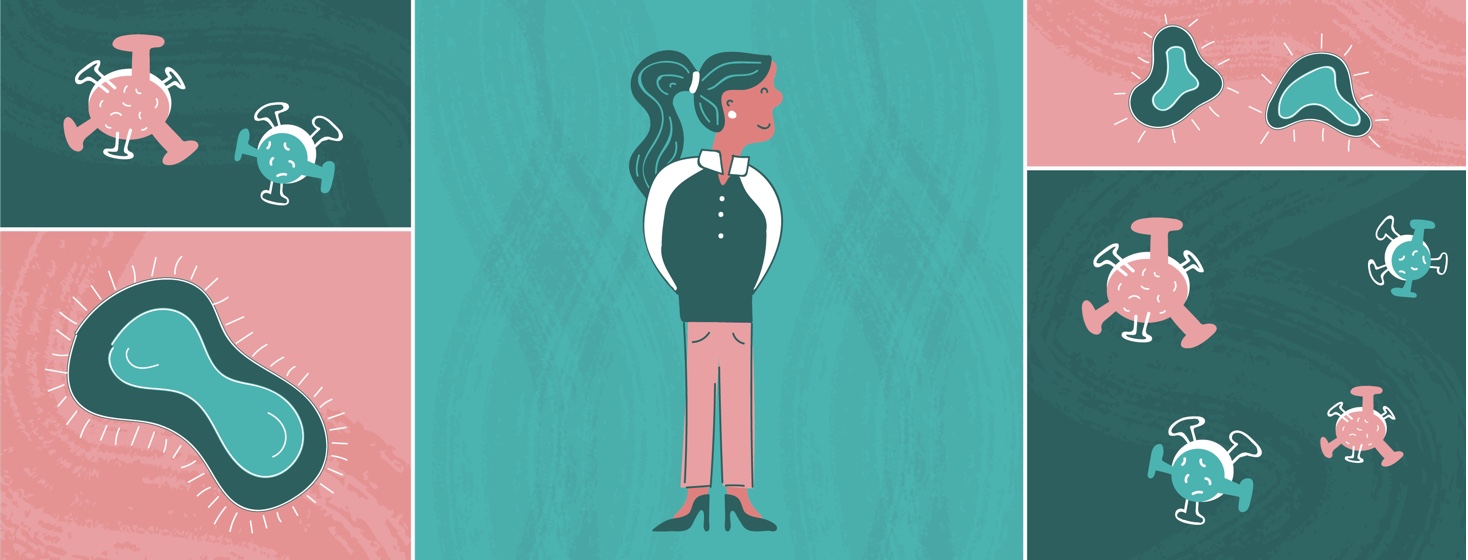COVID-19: Tips To Reduce Your Risk
With all of the news circulating about the novel (new) coronavirus, it can be easy to feel overwhelmed or anxious. This is especially true if you are immune-compromised due to having a pre-existing condition or are taking certain medications (steroids, biologics, chemotherapy, etc). COVID-19 is the illness caused by the newly identified strain of coronavirus. Although the threat of COVID-19 is low for the general public at this time, it is still never a bad idea to be prepared.
It is also cold and flu season. Many of the same tips that reduce the risk of getting COVID-19 are also helpful in reducing the risk of getting other illnesses, too. Although these are not guaranteed to completely prevent COVID-19, the Centers for Disease Control and Prevention (CDC) provides several risk-reducing tips that are mentioned below.
Practice proper handwashing
Regular hand washing is one of the most important ways to prevent the transmission of COVID-19 and other illnesses. Thorough hand washing lasts for at least 20 seconds with soap and water. Hand sanitizers that contain at least 60 percent alcohol can be helpful. However, hand sanitizer is not a replacement for good hand washing. Hand sanitizers are useful when you do not have access to soap and water.
Remember to wash your hands regularly during the day and:1,2
- After blowing your nose or coughing
- Before eating
- After coming into contact with someone who is sick
- After outside activities such as shopping
Help prevent the spread of germs
We are still learning how COVID-19 is transmitted. However, most experts think it is transmitted by coming into close contact with:3
- Someone who has COVID-19
- Respiratory droplets (germs in the air from coughing and sneezing)
- Surfaces where the virus rests for short periods of time before dying
Because of this, practicing basic infection prevention can be helpful in reducing risk. Some of these prevention strategies include:
- Avoid touching your face, nose, or mouth
- Avoid shaking hands with others
- Use only one tissue when blowing your nose or coughing, and throw that tissue away
- Cough into your elbow instead of your hand
- Wipe down or sterilize surfaces at home or work regularly, such as countertops, keyboards, and phones
- Change hand towels regularly
You should also make sure you are up-to-date on all vaccines including the flu and pneumonia vaccines. If you are unable to get these vaccines, encourage those around you to get their vaccines to help protect you.1,2,4
Reconsider outings
Whenever possible, avoid crowded or enclosed places, especially in areas where others are sick. If you are planning to travel somewhere that requires a long airplane ride or to a location where COVID-19 is prevalent, it may be a good idea to reconsider or reschedule your trip.
If you are sick, try to avoid going to crowded places, work, or other social outings if you are able.
Take precautions when traveling
If you do need to travel, be prepared. Bring your own bottle of soap in case you find yourself somewhere without any. Sterilizing wipes may also be helpful. You can use these to wipe down armrests, airplane tray tables, hotel surfaces, and more. Consider packing an extra set of clothes so you can change out of your travel clothing when you reach your destination.
If traveling overseas, check the U.S. State Department for travel advice for each country.
Cloth face coverings in public
In light of new information on COVID-19, on April 13, 2020, the CDC recommended that people wear cloth face coverings in public. Cloth face coverings that cover the nose and the mouth can help reduce the spread of coronavirus, especially when you are in areas where it is hard to stay at least 6 feet apart. Examples include the grocery store and pharmacy.
The cloth face masks are not to be mistaken with surgical masks or N-95 respirators that are needed to keep healthcare workers healthy. The CDC offers step-by-step instructions on how to wear cloth face coverings and how to make face masks using everyday items.
Prepare for social avoidance
Even with the best attempts at prevention, COVID-19 or other illnesses may still find their way into your life. Being prepared in case you do get sick can help make recovery easier. Stocking up on non-perishable food and medicine may be helpful in case you are stuck at home. You can ask your doctor to help you get extra quantities of your prescription drugs. You can stock up on over-the-counter medications on your own.
It also may be helpful to be prepared in case schools or workplaces are affected. If you have kids, have a plan in case their school or daycare closes. If your work allows, talk to your boss about working from home. Having a plan in place for working from home may help reduce the number of days you need to miss if you are feeling under the weather or have a coworker who is.
Editorial Note: This article was updated to reflect the CDC recommendations for people to wear cloth face coverings to control the spread of COVID-19 symptoms released on April 13, 2020.

Join the conversation